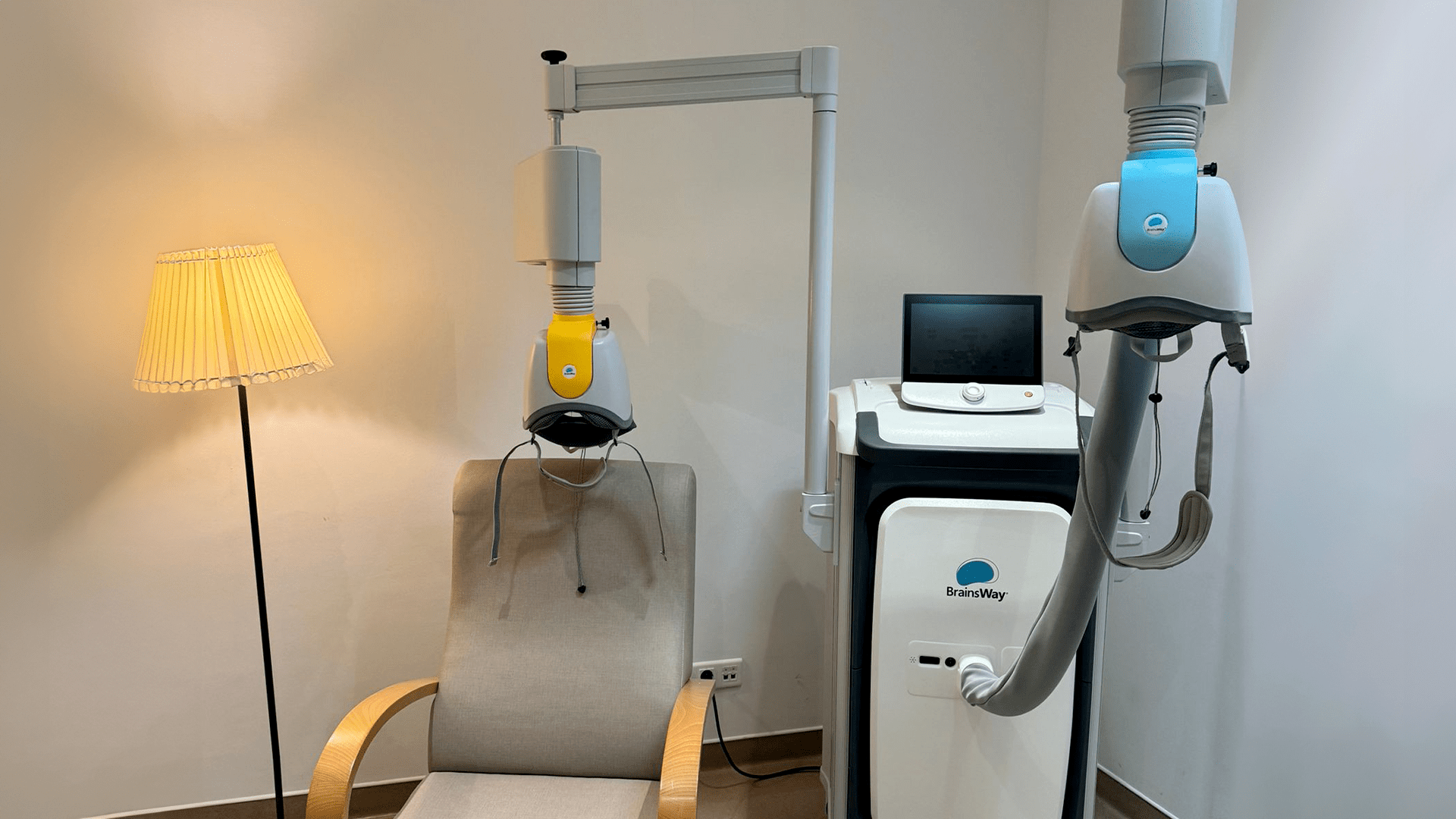What is Dementia?
Dementia is defined as a syndrome characterized by continuous and progressive cognitive and/or behavioral deterioration, with symptoms that interfere with daily life activities, leading to a functional decline compared to previous levels. It typically affects various domains, including memory, language, thinking, and personality, significantly impacting the patient's autonomy.
Dementia has physical, psychological, social, and economic impacts, not only on patients but also on their caregivers, families, and society at large. It is one of the leading causes of disability in the elderly.
According to the World Health Organization, there are currently more than 55 million people living with dementia, with approximately 10 million new cases reported each year. It is estimated that by 2050, this number could triple. Furthermore, dementia is now the seventh leading cause of death worldwide and one of the major causes of disability and dependence in older individuals.
Currently, there is no cure for dementia, but some pharmacological and non-pharmacological interventions can help alleviate symptoms, slow disease progression, and improve the quality of life.
Types of Dementia
There are different types of dementia, each varying in its causes, with few being effectively treatable or preventable. However, certain healthy lifestyle habits can delay the onset of symptoms.
According to the literature, several factors can contribute to an increased risk of developing dementia over time, such as physical inactivity, metabolic syndrome (high blood pressure, diabetes, obesity, dyslipidemia), substance abuse, aging, and social factors.
The incidence and prevalence of dementia vary with age, with the average age of onset being 65 years. Some subtypes, like frontotemporal dementia and rapidly progressive forms, can manifest with earlier symptoms.
The most common subtypes of dementia include:
1. Alzheimer's Disease
This is the most type of dementia, accounting for approximately 50 to 70% of diagnosed cases. It is characterized by the insidious and progressive loss of brain cells over time. Alzheimer's primarily affects memory but also other cognitive functions.
2. Vascular Dementia
Vascular Dementia is the most prevalent subtype in Portugal, according to a recent study conducted by the Epidemiology Research Unit (EPIUnit) at the University of Porto's Institute of Public Health (ISPUP). This is contrary to most Western European countries. Vascular dementia is caused by abnormal blood flow in the brain, often resulting from a stroke or silent mini-strokes. Consequently, it may have a more sudden onset than Alzheimer's disease, with symptoms varying depending on the affected brain areas. Common symptoms include difficulties in language, planning, and decision-making.
3. Lewy Body Dementia
This type of dementia is characterized by the presence of Lewy bodies, which are abnormal protein deposits in the brain that disrupt normal brain cell function. Reported symptoms include visual hallucinations, fluctuations in consciousness and attention, muscle rigidity, tremors, and balance problems.
4. Frontotemporal Dementia
Frontotemporal dementia primarily affects the frontal and temporal brain regions, leading to symptoms such as changes in personality, inappropriate social behavior, a lack of empathy, and difficulty in expressing and understanding language. In this subtype, short-term memory is relatively preserved in the early stages.
5. Dementia Associated with Parkinson's Disease
Some individuals with Parkinson's disease may develop dementia symptoms over time. Parkinson's disease is a progressive neurological disorder that affects motor control and may be associated with symptoms like tremors, muscle stiffness, and mobility issues. As the disease progresses, some people may develop dementia symptoms.
What causes Dementia?
There are various factors that can lead to dementia, although not all of them can be altered. Risk factors for dementia that cannot be modified include:
- Age: The risk of dementia increases with age, especially after 65. However, dementia is not an inevitability of aging, as many elderly individuals do not develop this condition, and it can also affect younger people.
- Heredity: Individuals with first-degree relatives (such as parents or siblings) with dementia have a slightly higher risk of developing the disease compared to those without a family history.
- Down Syndrome: Most people with Down syndrome develop neuropathological features of Alzheimer's disease as they age.
Risk factors for dementia that can be modified to reduce the risk include:
- Excessive Alcohol Consumption: Chronic and excessive alcohol consumption is considered a risk factor for developing dementia. Alcohol's neurotoxic effects can damage brain cells, interfere with nutrient absorption essential for brain health, and contribute to cell death.
- Cardiovascular Factors: Several cardiovascular factors are associated with an increased risk of vascular dementia, including high blood pressure, high cholesterol, diabetes, obesity, and smoking. These factors reduce blood flow to the brain.
- Low Educational Level: Low educational attainment may contribute to the development of late-life dementia, particularly affecting cognitive reserve. Cognitive stimulation is crucial for maintaining overall cognitive function and reducing dementia risk.
- Social Isolation: Longer periods of living alone are associated with a higher risk of dementia. Social engagement is a protective factor, as participating in positive and meaningful social interactions stimulates various brain areas, enhancing cognition and reducing the risk of dementia.
What are the symptoms of Dementia?
Dementia symptoms can vary depending on the specific type of dementia and the affected brain regions. However, there are some common general symptoms that can occur in various types of dementia and worsen as the disease progresses:
1. Memory Loss: Memory loss is a prominent and noticeable symptom of dementia, particularly in Alzheimer's disease. Over time, it can significantly disrupt the patient's life, causing forgetfulness of recent or past events, names of familiar people, appointments, and other everyday information.
2. Cognitive Difficulties: Tasks that were once familiar and simple, such as cooking, bathing, managing finances, or following instructions, can become severely compromised. Patients may struggle to focus on tasks or maintain attention for extended periods. They may also have difficulty finding appropriate words to express themselves or comprehending others' speech. Cognitive difficulties associated with dementia tend to worsen progressively, affecting independence and quality of life.
3. Disorientation: Individuals with dementia may become disoriented, having difficulty recognizing the current date, day of the week, month, or season, often losing track of time. They may also struggle to recognize their surroundings or orient themselves within a given location. In many cases, they may not recognize close relatives or friends, confusing them with other people or believing they do not know them. These various forms of disorientation can cause anxiety and confusion with dementia, as well as for their caregivers and families.
4. Behavioral and Personality Changes: As dementia progresses, changes in brain function can affect a person's behavior and emotional expression. These changes can pose significant challenges for both patients and their caregivers. Common changes include apathy, agitation, irritability, anxiety, depression, inappropriate or repetitive behavior.
How is Dementia diagnosed?
Diagnosing dementia involves a comprehensive clinical assessment, including:
- Clinical Observation: The physician gathers the patient's medical history and information provided by family members to understand the signs and symptoms, their evolution over time, and their impact on daily functioning. The physician also considers risk factors and events that may mimic, exacerbate, or be associated with dementia development.
- Physical, Neurological, Laboratory, and Neuropsychological Examinations: After a structured history-taking and physical examination of the patient, additional diagnostic tests may be required. These can include laboratory assessments, neuroimaging studies (such as computed tomography or magnetic resonance imaging of the brain), and neuropsychological evaluations performed by a neuropsychologist. Neuropsychological assessments involve specialized tests to evaluate the patient's cognitive function, including memory, language, reasoning skills, attention, and visuospatial abilities. These supplementary evaluations aim to formulate a final diagnosis, identify the underlying cause of the clinical presentation, and exclude potentially reversible conditions.
What does Dementia treatment involve?
Dementia is a degenerative disease without a cure, so the goal of treatment is to slow the progression of symptoms, improve the patient's quality of life, and support caregivers. Treatment is personalized, but key therapeutic strategies include:
1. Medication: There are medications available to treat specific dementia symptoms, temporarily enhancing cognitive function and delaying disease progression. Physicians may also prescribe medications to help manage behavioral and psychological symptoms, such as anxiety, depression, and agitation.
2. Cognitive Rehabilitation: Cognitive rehabilitation plays a significant role in the treatment of certain forms of dementia. It involves the use of specific techniques and exercises to stimulate cognitive function and help individuals cope with dementia-related difficulties. Examples include exercises to enhance information retention, improve attention and concentration, stimulate reasoning and problem-solving skills. Cognitive rehabilitation is typically conducted by professionals specialized in occupational therapy, speech therapy, or neuropsychology.
3. Occupational Therapy:
Occupational therapy is an essential component of a multidisciplinary approach to the treatment and care of individuals with dementia. Occupational therapists help patients maintain independence in self-care activities, such as dressing, bathing, eating, and performing household tasks. They also optimize functional skills for daily management, such as medication administration, the use of assistive devices, and engagement in leisure activities. Additionally, they may recommend environmental adaptations to enhance safety and accessibility for individuals with dementia.
4. Speech Therapy:
Speech therapy plays a crucial role in the treatment and management of communication and swallowing difficulties that may arise with dementia. Speech therapists help develop strategies to compensate for language deficits, including the use of alternative communication systems. They are essential for improving muscle coordination and the safety of swallowing in cases where dementia affects swallowing function.
How to prevent or delay dementia
While it may not be possible to prevent dementia entirely, several strategies can help reduce the risk of developing the condition or delay its progression. Some measures to promote brain health include:
1. Regular Exercise: Maintaining a routine of regular physical activity can improve both cardiovascular and brain health. Key benefits include improved blood circulation, increased brain volume, and enhanced neuroplasticity. Physical activity can include activities like walking, swimming, dancing, or other aerobic exercises.
2. Healthy Diet: A healthy diet promotes brain health. Opt for a diet rich in fruits, vegetables, whole grains, omega-3-rich fish (such as salmon and sardines), nuts, and antioxidant-rich foods like blueberries and spinach. Reduce the consumption of processed foods, saturated fats, and sugars. Smoking and excessive alcohol consumption are strongly discouraged.
3. Regular Medical Care: Undergoing regular medical check-ups, monitoring overall health, and following medical advice are essential for early detection of health issues and the treatment of conditions that may contribute to dementia. Managing conditions such as high blood pressure, diabetes, and high cholesterol is crucial for protecting brain health.
4. Mental Stimulation: Engaging in intellectually stimulating activities can help maintain cognitive function. People with greater cognitive reserves, keeping the brain flexible, adaptable, and resilient to the effects of the disease. Examples include reading, crosswords puzzles, board games, puzzles, music lessons, dance, art, and learning new languages and skills.
5. Social Engagement: Social activities also play a vital role in dementia prevention and brain health promotion. Positive and meaningful social interactions stimulate various brain areas, enhancing cognition while providing emotional support and reducing feelings of loneliness. Therefore, it is essential to be part of social groups, clubs, organizations, volunteer, participate in events and gatherings with friends and family, or engage in group activities like exercise or dance.
Joaquim Chaves Saúde in the fight against all types of Dementia
Diagnosing dementia can be challenging, but early measures make a significant difference in treatment and management. The experienced multidisciplinary team at Joaquim Chaves Saúde is prepared to support you from the very beginning, using the most up-to-date medical assistance protocols to invest in a healthier future. Schedule your consultation now through the personal area of the website or our app.






